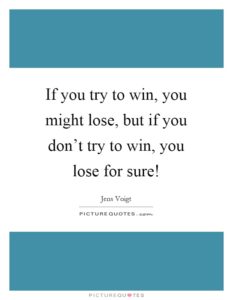The world quickly turned from a candidate-driven market to a company driven market, meaning for the first time in about a decade Recruiters will have the power. Now, as a candidate, you might have always felt that recruiters had the power, but you haven’t seen anything until you’ve seen a recruiter in full “I’ve got the power” mode!
I was thinking about this and wanted to share some of the top Recruiter Lies so candidates could spot them, and while you probably can’t call them out, spotting a recruiter lie will help you strategically begin to work on another way to get the response you need:
Send Us Your Resume, Even Though We Don’t Have a Job Lie – I would say this is a ‘semi-lie’. While the recruiter might not have the opening currently, they’re asking for a resume because they frequently have those openings and they never know when one is coming. The recruiter, though, is wrong by not telling you this upfront, so you know what to expect.
– The Hiring Manager Hasn’t Gotten Back To Me Lie – This is a lie and not a lie, potentially! For Corporate Recruiters this is a lie or lazy, I’ll let you pick. If you’re a corporate recruiter and tell the candidate that the hiring manager hasn’t gotten back to you get your butt up from your desk and walk over to the hiring manager’s desk! If they’re in a different location and won’t get back to you, then you have an influence problem you need to work on. Agency-wise it’s the one frustrating things recruiters have to deal with. Hiring Managers will get to ‘us’ when they feel like it, and usually after they’ve exhausted every other opportunity internally to fill the position.
– The Never Call Back the Candidate Lie – this really isn’t a lie but this happens all the time! For the sake of Recruiters everywhere if you do this please quit this profession! We (all Recruiters) Hate you as well. You give all of us a bad name. It takes 10 seconds to call back a candidate you spoke to a job about, and tell them “Sorry, you were not chosen and stay in touch, or don’t call me again, etc.” 10 seconds!
– The You Didn’t Score High Enough On The Assessment Lie – The company you’re trying to get into might actually have cut-off scores they’ve established and the lie comes into play when a hiring manager presents someone they’ve worked with previously and that person scores the same as you but they still get the job. If they really like you, the assessment wouldn’t stop them from hiring you.
– The We’ve Decided To Go Another Direction Lie – This comes along with the ‘We really liked you, but” Lie. This is Recruiter training 10, to not get yourself into trouble when telling a candidate they didn’t get the job we give them a reason that legally can never come back and bite you in the butt. “We really, really, really liked but have decided to not fill the position.” Two weeks later a job posting comes out that seems very similar but with a title change and a few description changes. They didn’t like you.
What’s the biggest reason Recruiters lie?
They have major conflict-avoidance and are not willing to tell you the truth, which is usually there is something wrong with you based on what they are looking for and don’t want to hurt your feelings. Unfortunately, many candidates would actually be helped by a little Recruiter honesty but recruiters are afraid of candidates who get told the truth and then get charges from the EEOC, other state or federal agencies, or just get flat out sued. Candidates have a hard time with feedback like, “you’re really creepy”, “you’re annoying” or “your personality is grating”. So, the lies come into play because Recruiters have found Lies are easier than the truth.





